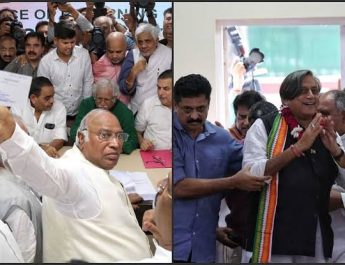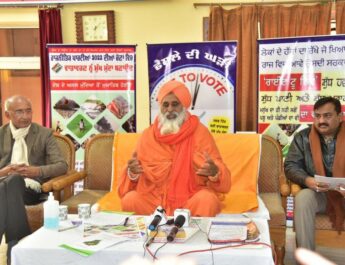From Our Bureau
NEW DELHI: In a split judgment on a batch of 26 appeals challenging the ban on Hijab in Karntaka’s schools and colleges, a 2-judge Bench of the Supreme Court on Thursday referred the matter to the Chief Justice of India to constitute an appropriate larger bench.
While presiding judge Justice Hemant Gupta dismissed the appeals against the Karanataka High Court’s March 15 verdict, Justice Sudhanshu Dhulia allowed them in the judgment reserved on September 22 after 10 days of hearing. Justice Gupta is retiring on Sunday and so he could not hold back the ruling any further.
During the hearing in the Supreme Court, lawyers appearing for the petitioners insisted that preventing Muslim girls from wearing the hijab in classes would jeopardise their studies as they could be barred from attending classes.
A section of lawyers had also requested to refer the matter to a five-member constitution bench. At the same time, lawyers appearing for the state government had said that the Karnataka government’s decision to create controversy over the hijab was “religion-neutral”.
While pronouncing the judgement, Justice Dhulia said the high court had taken a wrong path and that wearing hijab is ultimately “a matter of choice, nothing more, nothing less”.
He said his main thrust in the judgment is concept of essential religious practice which was not essential to the dispute. Saying that his focus was on education of the girl child, especially in rural areas, Justice Dhulia asked, “Are we making her life any better?”
While allowing the appeals against the high court verdict, Justice Dhulia said he had quashed the state government’s February 5, 2022 order which banned wearing clothes that disturb equality, integrity, and public order in schools and colleges.
Dismissing the appeal, Justice Hemant Gupta maintained that wearing Hijab is not a part of the essential religious practice under Islam and the Karhatama government order serves the purpose of access to education.
“In my order, I have framed 11 questions. First is, whether the appeal should be referred to a constitutional bench. Whether college management can take a call on the uniform of students and if wearing of Hijab and restricting it is violative of Article 25. Whether right under Article 19 and Article 25 is mutually exclusive. Whether government order infringes upon the fundamental right,” Justice Gupta said.
“Can a student exert her fundamental right, is wearing right a part of essential religious practice under Islam, whether government order serves the purpose of access to education: the answer according to me is against the appellants. I dismiss the appeal,” Justice Gupta held.
In its March 15 ruling, a three-judge Bench of the then Karnataka HC Chief Justice Ritu Raj Awasthi and Justices Krishna S Dixit and JM Khazi held that Hijab is not a part of essential religious practices of Islam and that requirement of uniform is a reasonable restriction on the fundamental right to freedom of expression under Article 19(1)(a). It had dismissed the petitions filed by a group of the Muslim girls of the government pre-university girls college in Udupi, Karnataka, seeking permission to wear the Hijab inside classrooms.
In response, the state counsel emphasised in the top court that the movement in support of wearing hijab in educational institutions was not a “spontaneous act” by some individuals and further argued in the apex court that the government would have been “guilty of breach of constitutional duty” if it had not acted the way




